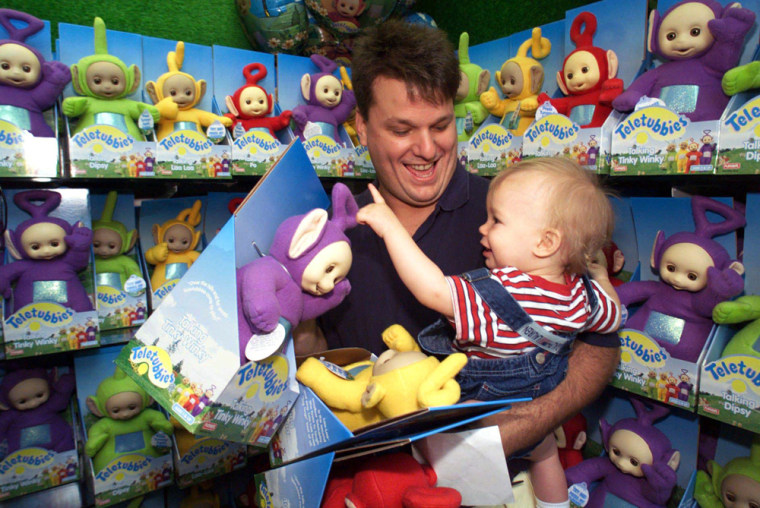The European Parliament on Tuesday endorsed a ban on a potentially hazardous chemical used to soften plastics for children’s toys and other childcare products, formalizing a measure that could have wide implications for toy makers.
The new law bans six types of phthalates, a family of chemicals generally used to make vinyl plastics more flexible. The ban affects a broad range of products made within the 25-member European Union and imported from places such as China.
In 1999, the EU adopted a temporary ban on toys and pacifiers that contain certain phthalates because of concern over possible health risks. The new legislation, approved by an overwhelming majority of lawmakers, makes this measure permanent.
It bans the use of the three most dangerous phthalates — DEHP, DBP and BBP — in all toys and childcare items irrespective of use and target age group and outlaws three other phthalates — DINP, DIDP and DNOP — in all toys and childcare products that can be placed in the mouth.
Industry uncertainty
Monika Colle, a spokeswoman for ZAPF Creation AG, a German doll maker, said it was unclear how many of the company’s products would be affected.
“What does ’products that can be put into the mouth’ really mean? Manufacturers will have to draw up product lists for review by the European Commission,” she said.
The European Commission, which drafted the law, has said the phthalates released when children put certain products in their mouths are dangerous and may lead to liver, kidney and testicular damage.
“This decision will put an end to several years of uncertainty during which this issue was debated at length and different national policies emerged,” said EU Industry Commissioner Guenter Verheugen. “There is now a more stable legal situation which will enable industry to plan in conditions of certainty.”
Conflicting studies
Scientific research has produced contradictory findings on the last three types of phthalates, but EU lawmakers argued a ban should be applied as a precaution.
“Toys are meant to be fun and safe but soft PVC toys full of hazardous substances are neither fun nor safe. I am relieved that dangerous softeners in kids’ toys will now be banned,” said Welsh parliamentarian Jill Evans.
In a position paper issued prior to the vote, Toy Industries of Europe, an industry lobby group representing companies such as the Lego Group and Mattel, said banning DINP could “create supply problems within the European toys market as a result of an immediate and high demand for the very small number of approved alternative substances.”
A plastics industry group said the new legislature is unnecessary and ignores scientific assessments.
“Banning a substance which has been scientifically risk assessed as safe, thereby forcing manufacturers to use alternatives about which less is known, does nothing to protect the health of children,” said David Cadogan, director of the European Council for Plasticisers and Intermediates.
